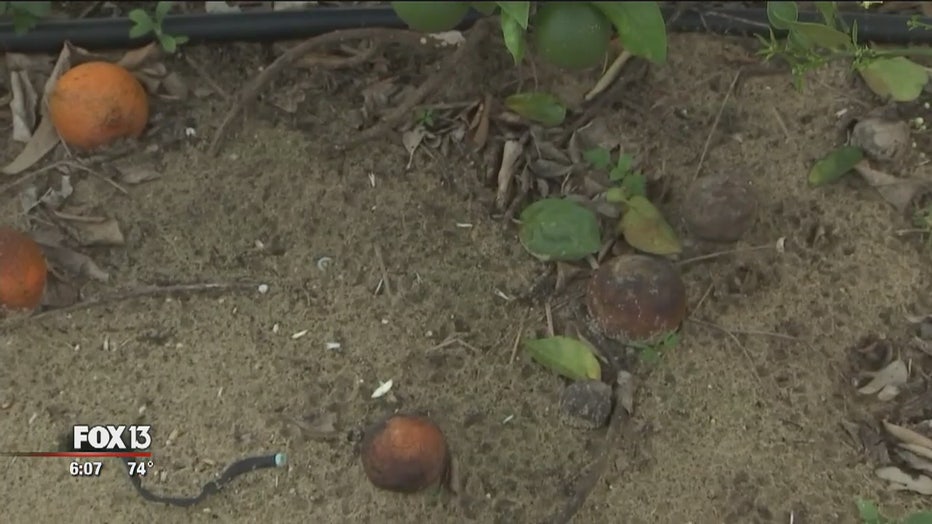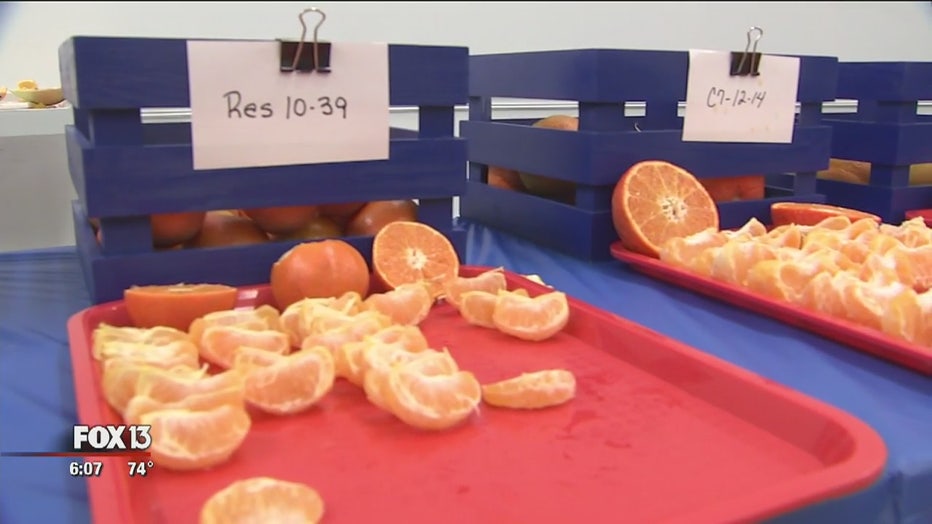Greening-resistant fruits could help citrus industry bounce back

Citrus growers taste-test greening-resistant fruits
A team at the University of Florida has developed about 50 varieties of oranges that are resistant to the greening fungus.
LAKE WALES, Fla. - For Ellis Hunt, taste tests come down to this: "Would you tell your family or friends you need to buy some of this?"
He's a third-generation citrus grower in Lake Wales.
Since 2010, he has been forced to cut jobs by half after his groves fell victim to citrus greening, a fungus that kills oranges. The impacted trees do not seem to recover.
Hunt visited the University of Florida's orange lab in Lake Alfred to taste 50 fruits designed to resist greening. If he and other growers like the taste, they can buy the right to grow them.
"It is extremely difficult, but the strong survive," Hunt said. "We hope to be one of the strong and hang in there."
Citrus greening has caused a 40% drop in jobs since 2006. Two seasons ago, they produced an all-time low of 40 million boxes. But last season, they made 70 million.

"The industry seems to be turning a little bit," said Dr. Tripti Vashisth, a horticulturist at UF. "We are seeing positive results."
She is part of the team that develops greening-resistant crops. While there's no cure, if they can design oranges that stay on trees longer, growers will make more money.
"People who are managing their groves well, trying to understand what's going on, address the needs of the tree, are able to improve their earnings," Vashisth said.
The citrus industry is expected to have an $8.6 billion impact in Florida, down from $9.3 billion 15 years ago.
The Washington Post reports there were once 7,000 growers, but now there are only 2,000.
Growers are hoping these oranges will yield green instead of greening.
"You can clearly see perhaps, 'Hey, we really like this. We should plant more of these or we should not plant these over here,'" said Hunt.


